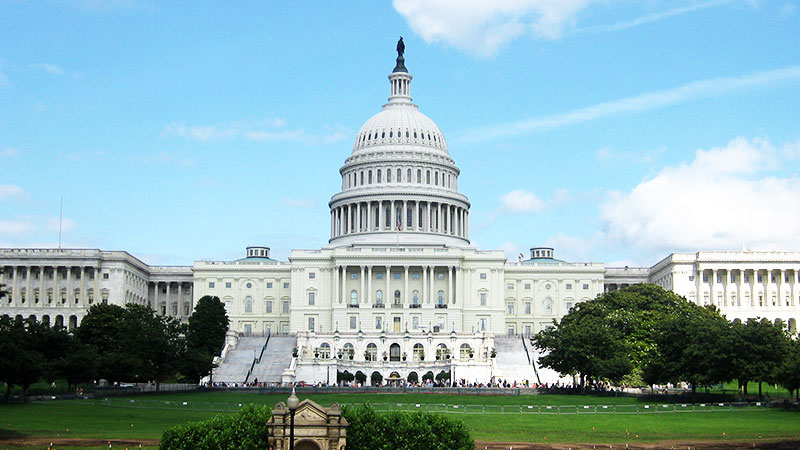
Please ask your House of Representatives Member to support H.R. 7944, the Water Systems PFAS Liability Protection Act!
Please ask your House of Representatives Member to support H.R. 7944, the Water Systems PFAS Liability Protection Act!
As a water utility striving to provide a safe, affordable public service to our ratepayers, there is a concern that EPA’s designation of PFOA and PFOS as hazardous substances under CERCLA will cause water systems and ratepayers – rather than polluters – to incur environmental cleanup liability that should be faced by the entities responsible for that pollution.
H.R. 7944 would provide a statutory protection for water systems from liability under CERCLA for PFAS to help ensure polluters, not the public, pay for PFAS cleanup.
From the start, CERCLA was built on a “polluter pays” principle, envisioned as holding companies that produced and profited from hazardous substances that were discharged into the environment responsible for their cleanup. This polluter pays principle is laudable – but unfortunately, the hazardous substance designation of PFOA and PFOS – nondegradable “forever chemicals,” which are now ubiquitous in the environment— means that drinking water and wastewater systems that passively receive these substances into their systems could face CERCLA cleanup liability simply because an upstream polluter deposited the chemicals in their water supplies.
The CERCLA designation for PFAS exposes drinking water and wastewater utilities like ours to potential litigation from the actual polluters. PFAS users and producers can abuse litigation to reduce their own clean-up costs and increase costs on water utilities – costs which we are then forced to pass along to ratepayers. Even when water systems are able to successfully defend ourselves in court against CERCLA claims, the cost of that litigation alone could contribute to the ongoing water affordability challenge.
CERCLA liability will be an additional burden on top of the significant treatment costs utilities will incur to meet Safe Drinking Water Act and Clean Water Act PFAS regulations. CERLCA would unjustly make ratepayers pay yet again for the environmental remedial burden that should be borne by the companies that produced and profited from PFAS for decades.
As the hazardous substance designation of PFOA and PFOS was recently finalized, it is critical that Congress move quickly to ensure that water systems and their ratepayers are not unfairly punished for PFAS contamination for which they bear zero responsibility or blame.
Please ask your House Member to support H.R. 7944, the Water Systems PFAS Liability Protection Act, introduced by Representatives John Curtis and Marie Gluesenkamp Perez. This bill would preserve the “polluter pays” principle under CERCLA and ensure that water utilities can continue to focus their efforts on maintaining water quality.
Take Action Today!
Please ask your House of Representatives Member to support H.R. 7944, the Water Systems PFAS Liability Protection Act!
Please ask your House of Representatives Member to support H.R. 7944, the Water Systems PFAS Liability Protection Act!
As a water utility striving to provide a safe, affordable public service to our ratepayers, there is a concern that EPA’s designation of PFOA and PFOS as hazardous substances under CERCLA will cause water systems and ratepayers – rather than polluters – to incur environmental cleanup liability that should be faced by the entities responsible for that pollution.
H.R. 7944 would provide a statutory protection for water systems from liability under CERCLA for PFAS to help ensure polluters, not the public, pay for PFAS cleanup.
From the start, CERCLA was built on a “polluter pays” principle, envisioned as holding companies that produced and profited from hazardous substances that were discharged into the environment responsible for their cleanup. This polluter pays principle is laudable – but unfortunately, the hazardous substance designation of PFOA and PFOS – nondegradable “forever chemicals,” which are now ubiquitous in the environment— means that drinking water and wastewater systems that passively receive these substances into their systems could face CERCLA cleanup liability simply because an upstream polluter deposited the chemicals in their water supplies.
The CERCLA designation for PFAS exposes drinking water and wastewater utilities like ours to potential litigation from the actual polluters. PFAS users and producers can abuse litigation to reduce their own clean-up costs and increase costs on water utilities – costs which we are then forced to pass along to ratepayers. Even when water systems are able to successfully defend ourselves in court against CERCLA claims, the cost of that litigation alone could contribute to the ongoing water affordability challenge.
CERCLA liability will be an additional burden on top of the significant treatment costs utilities will incur to meet Safe Drinking Water Act and Clean Water Act PFAS regulations. CERLCA would unjustly make ratepayers pay yet again for the environmental remedial burden that should be borne by the companies that produced and profited from PFAS for decades.
As the hazardous substance designation of PFOA and PFOS was recently finalized, it is critical that Congress move quickly to ensure that water systems and their ratepayers are not unfairly punished for PFAS contamination for which they bear zero responsibility or blame.
Please ask your House Member to support H.R. 7944, the Water Systems PFAS Liability Protection Act, introduced by Representatives John Curtis and Marie Gluesenkamp Perez. This bill would preserve the “polluter pays” principle under CERCLA and ensure that water utilities can continue to focus their efforts on maintaining water quality.
Take Action Today!
